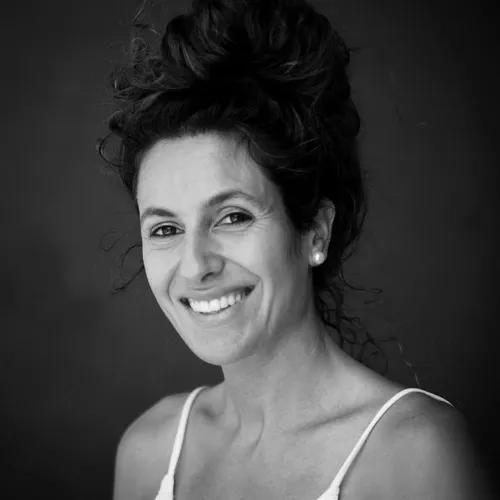Martial Arts For Trauma Healing
Discover martial arts and self-defense as empowering, reparative, and unique tools to process and release trauma.
Trauma can profoundly impact our emotional, physical, and cognitive well-being.
Trauma is a deeply personal and multifaceted experience and encompasses not only the initial event but also the potential layers of adversity that follow.
One of the most challenging and powerful emotions to navigate after trauma is anger and rage due to the injustice, violation, or powerlessness endured.
Anger and rage can manifest in both outward and inward expressions. Some trauma survivors may find themselves lashing out at others or engaging in destructive behaviors, while others might internalize their emotions, leading to self-blame, guilt, or shame.
Your feelings are valid and an essential part of the healing journey. Rather than viewing these emotions as obstacles, acknowledging and understanding them can pave the way for transformative growth.
Thankfully, body-based therapies offer us a way to externalize our experience of trauma safely.
Traditional martial arts practices encompass a holistic approach, blending physical movements, mindfulness, and meditative elements (Gladstone, 2018; Bell, 2008; Woodward, 2009).
Emerging research highlights that the ancient practice of martial arts can have a positive effect on stress reduction, emotional regulation, memory improvement, and self-efficacy, all processes often disrupted by trauma (Gladstone, 2018), and can also help to:
- Alleviate emotional dysregulation and rage due to its focus on mindfulness, self-control, and emotional expression (DePrince & Cohen, 2018)
- Reduce feelings of vulnerability and nurture empowerment after trauma or assault (Mousavi, 2019)
- Relieve anxiety, depression, PTSD, and anger (Pujari, 2023)
- Improve emotional resiliency and self-efficacy (Moore, 2021)
- Boost confidence and self-trust after interpersonal trauma (Vargas, 2019)
- Foster a sense of accomplishment and self-confidence to support recovery from substance abuse (Vargas, 2019)
- Nurture a deeper mind-body connection to relieve dissociation and hypervigilance
- Improve sleep through repetitive movement and mindfulness practices
This online Martial Arts For Trauma Healing Program offers transformative exercises and theory modules designed to empower trauma survivors by providing a safe outlet to externalize their experiences and release stored trauma, fostering emotional regulation, promoting resilience, and rebuilding a positive mind-body connection.
Join us on a deeper dive into this fascinating practice with three of our highly knowledgeable experts, who will be sharing a variety of modalities within martial arts for trauma healing.
This program will lead you through seven expert-guided, 10-minute-a-day trauma healing exercises :
In this program, you’ll gain access to six expert-led theory modules:
Discover martial arts and self-defense as empowering, reparative, and unique tools to integrate and release trauma.
Our Programs Come With:
-
A private supportive community
-
Lifetime access to the program and all future updates
-
Technical support via email and messenger
-
Start at any time at your own pace
-
A 72-hour money-back guarantee
- A 30-day program exchange policy
Register Here For $240
You will receive access to six expert-led theory modules exploring the benefits of martial arts for trauma healing. You will also be led through seven expert-guided, 10-minute-a-day techniques to strengthen mind-body connection and facilitate healing through the transformative power of physical movement.
Meet Rewire Trauma Therapy's Trauma Healing Experts

Tanya Zajdel
RN, PSYCHIATRIC NURSE, FOUNDER OF REWIRE TRAUMA THERAPY
Tanya’s work with trauma healing and survivorship has been featured at the Tribeca Film Festival, CBC News, Vox Tablet and Iheart Radio.
Tanya is a mental health worker, a women’s health nurse, and a published feminist author. Tanya focuses primarily on creating programs that facilitate trauma healing through creating new neural connections in the brain called 'neuroplasticity exercises'.
Her techniques combine various proven therapies to repair and reset the nervous system after trauma including somatic therapy, yoga, drama therapy, dance therapy, CBT, qigong, EMDR, vagal toning, authentic movement, and a combination of expressive, creative art therapies.

Georgia Verry
MARTIAL ARTIST, EXERCISE SCIENTIST, & PODCASTER
Georgia is an Exercise Scientist, Kyokushin karate black belt, pro-level Muay Thai fighter, and BJJ blue belt with 15 years of experience in martial arts. Georgia founded Conscious Combat Club - a trauma-informed kickboxing program for female-identified survivors offered online and in person. Georgia hosts The Fight Back Podcast and offers online training programs for conscious combat coaches that want to create bespoke trauma-informed programs unique to their experience and martial art.

Pamela Armitage
SELF-DEFENCE EXPERT, CERTIFIED YOGA TEACHER
Pamela is the Co-Founder of Study of Violence, RP Solutions, and Your Self-Defense Experts, certified by both Senshido and Safe International. She is a RYT200 Certified Yoga Teacher with a special focus on Trauma Sensitive Yoga, continuing her research into trauma-informed care education through courses with Trauma Research Center, Crisis and Trauma Resource Institute. Since 2016 she has been working with clients who are overcoming PTSD, CPTSD, substance abuse disorder, survivors of sexual assault, and domestic violence.
In Collaboration With Experts Affiliated With:
Rewire Trauma Therapy carefully curates 10-minute-a-day trauma healing exercises from over eight body-based therapies to release the debilitating effects of trauma in a way that words cannot. Our body-based therapeutic exercises integrate elements from the following:
- Polyvagal Theory inspired vagal toning exercises
- Dance and movement therapies
- Trauma-informed yoga
- Bilateral stimulation therapies
- Somatic therapies
- Qigong
- Sound and music therapies
- Tai Chi
- Martial arts
- Expressive arts therapies
- Hypnotherapy
Meaningful Feedback
“Thank you so much for creating and sharing such a helpful and inspiring program and for making it affordable as well.”
Tracie Jones, Survivor
"Rewire was perfect for us. It allows us to use the program when we are able and has been a wonderful addition to our daily lives. We both struggle with anxiety and need to work through releasing trauma stored in our bodies."
Renee Boos, Survivor
"The course was presented in a very fresh, interesting, and informative way. The panel was extremely caring, professional, and engaging. The theory, exercises, and bonus program exercises were a beautiful way to present such rich information."
Rita Ehrman, Survivor
"It helps me to feel the body and everything that happens in it, to slow down, and be focused. I found the tools of Rewire Therapy very practical and it suits me."
Milena Blankman, Survivor
"I would think if someone was new to therapy, these exercises would help calm their mind and body so they could be more vulnerable and become more conscious and aware of their thoughts and feelings. This is a great program and I hope people take advantage of it."
Matt Domyancic, Medically Retired Cop
"I notice that I am 'tolerating' more feelings and exploring them as being transient, also to see if they are information for the here and now or something else. The approach is so gentle that I forget the power of that. I am grateful and get that this is ongoing."
Liz Gow, Survivor
“The course was presented in a very fresh, interesting, and informative way. The panel was extremely caring, professional, and engaging. The theory, exercises, and bonus program exercises were a beautiful way to present such rich information.”
Rita Ehrman, Survivor
Register Here For $240
You will receive access to six expert-led theory modules exploring the benefits of martial arts for trauma healing. You will also be led through seven expert-guided, 10-minute-a-day techniques to strengthen mind-body connection and facilitate healing through the transformative power of physical movement.
Frequently Asked Questions
How long do I get access to the program?
What is your refund policy?
Are the educators in this program licensed to guide me?
If I am not traumatized by any one experience but I’m looking to improve my overall mood and mental health, is this course still for me?
Can I use this course to support my loved one who struggles with mental health?
Is it better to combine various therapy techniques (as suggested in your program) to heal from my trauma, or is it better to stick with just one form of therapy?
Do your programs contain only video content?
Can children participate in your programs?
Do you offer payment plans or scholarships?
Do you offer in-person sessions?
Sources
1Gladstone, J. (2018). Are martial arts an effective self-care practice for mental health professionals?
2Bell, C. (2008). Asian martial arts and resiliency. Ethnicity and Inequalities in Health and Social Care, 1(2), 11–17.
3Woodward, T. W. (2009). A review of the Effects of Martial arts practice on Health. Wisconsin Medical Journal, 108(1).
4Pujari, V. (2023). Martial Arts Training and Cognitive Behavioral Therapy: A Synergistic Approach to Mental Health. Journal of Coastal Life Medicine, 2(11), 692–698.
5Moore, B. W. (2021). Physical activity and mental health: A randomized controlled trial examining martial arts training as a psychosocial intervention in schools. Macquarie University.
6Vargas, A. G. (2019). Psychological Effects of Training in Martial Arts After Interpersonal Trauma [Walden University]. https://scholarworks.waldenu.edu/dissertations
7Rinderer, M. (2022). Can Brazilian Jiu Jitsu be a Viable Treatment Option for Law Can Brazilian Jiu Jitsu be a Viable Treatment Option for Law Enforcement Officers with PTSD? Enforcement Officers with PTSD? [University of Denver]. https://digitalcommons.du.edu/capstone_masters
Register Here For $240
You will receive access to six expert-led theory modules exploring the benefits of martial arts for trauma healing. You will also be led through seven expert-guided, 10-minute-a-day techniques to strengthen mind-body connection and facilitate healing through the transformative power of physical movement.




